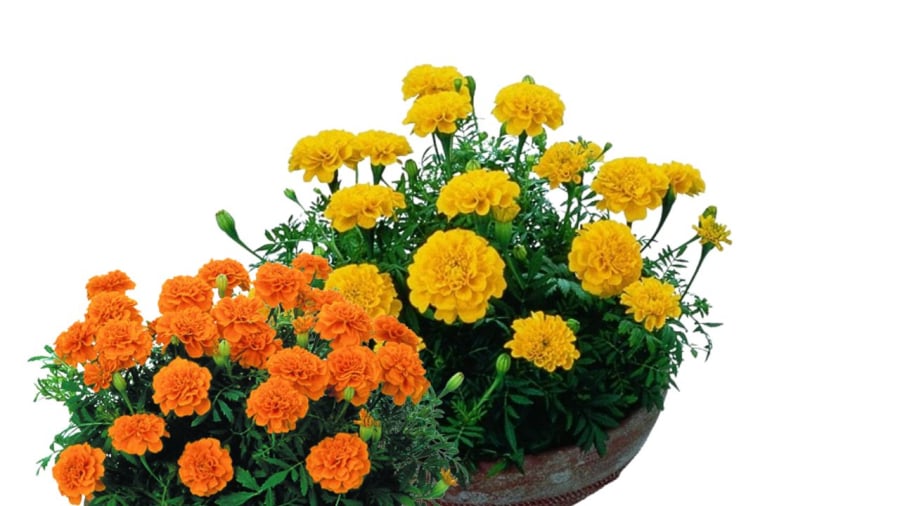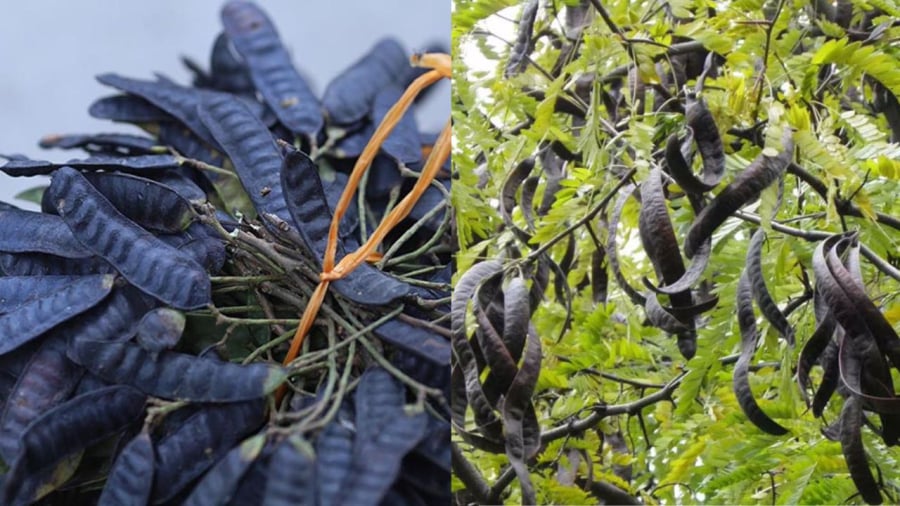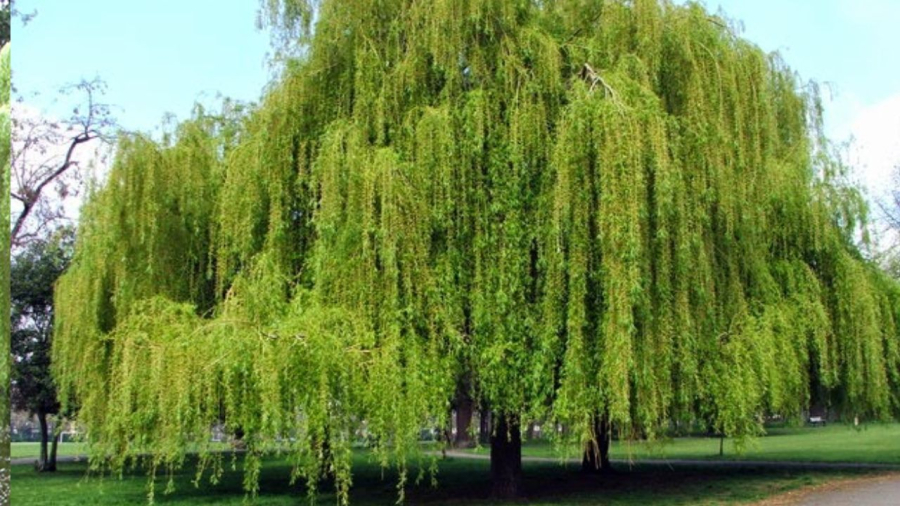Avoid Planting Marigolds
Marigolds are familiar flowers. The name ‘cúc vạn thọ’ in Vietnamese sounds meaningful and beautiful, but these flowers are commonly planted at gravesites to decorate and honor the eternal rest of the deceased. Thus, planting marigolds in front of a house may evoke associations with graveyards, creating an atmosphere that is less than cheerful for the residents.
Marigolds are characterized by their pungent, unpleasant odor, making them unsuitable for planting near the home. They also attract insects, which can then find their way inside. For these reasons, marigolds are often planted in parks for their beauty and ease of care, and they are also used as companion plants in vegetable gardens to protect the crops.

Marigolds: A Pungent No-No
Steer Clear of Prickly Plants Like Bitter Melons and Cacti
In feng shui, sharp objects like thorns, needles, and knives are believed to generate negative energy that can bring illness and misfortune to the household. Therefore, plants with abundant thorns, such as bitter melons and cacti, are avoided in front-yard gardens to prevent this negative energy from entering the home. Additionally, these prickly plants can cause accidents and injuries if one accidentally brushes against them. For this reason, plants with sharp, pointed thorns are not recommended for landscaping near the house. Moreover, the sight of these spiky plants can evoke feelings of frustration and anger, leading to disharmony within the family.

Bitter Melon: A Thorny Affair
Don’t Plant Mulberry Trees: A Harbinger of Death and Gloom
In folklore, mulberry trees are associated with heavy negative energy. Planting them near the house is believed to invite death and misfortune, as they are seen as trees of ghosts and demons, carrying their malevolent energy. Doing so is considered an ill omen, foretelling loss of life or personnel within the family, bad luck, and a constant sense of gloom and impending separation.
Willows: A Melancholy Choice
Willows are romanticized in poetry, but their perpetually drooping form can be a downer. Planting willows is believed to dampen the spirits of the household. In feng shui, their drooping branches are thought to pull down positive energy, leading to a decline in fortune rather than an increase. Additionally, willows evoke images of sad, lonely women, reflecting a sense of long- and heartache. Planting them near the house may cause the residents to feel similarly forlorn. This melancholy mood is not conducive to improving one’s financial situation. The cold, gloomy energy associated with willows can also make the entrance of your home feel unwelcoming and imbalanced, attracting more negative energy and leaving your doorstep feeling dreary and lifeless.

Willows: A Melancholy Sight
Avoid Planting Cypress Trees
Cypress trees are tall, long-living trees, but they are commonly associated with cemeteries and are believed to carry strong negative energy. Planting them near your home may evoke a sense of gloom and a reminder of graveyards. While cypress trees are strong and resilient, they are typically found in religious sites or cemeteries rather than private residences.
Disclaimer: This information is for reference only.



































